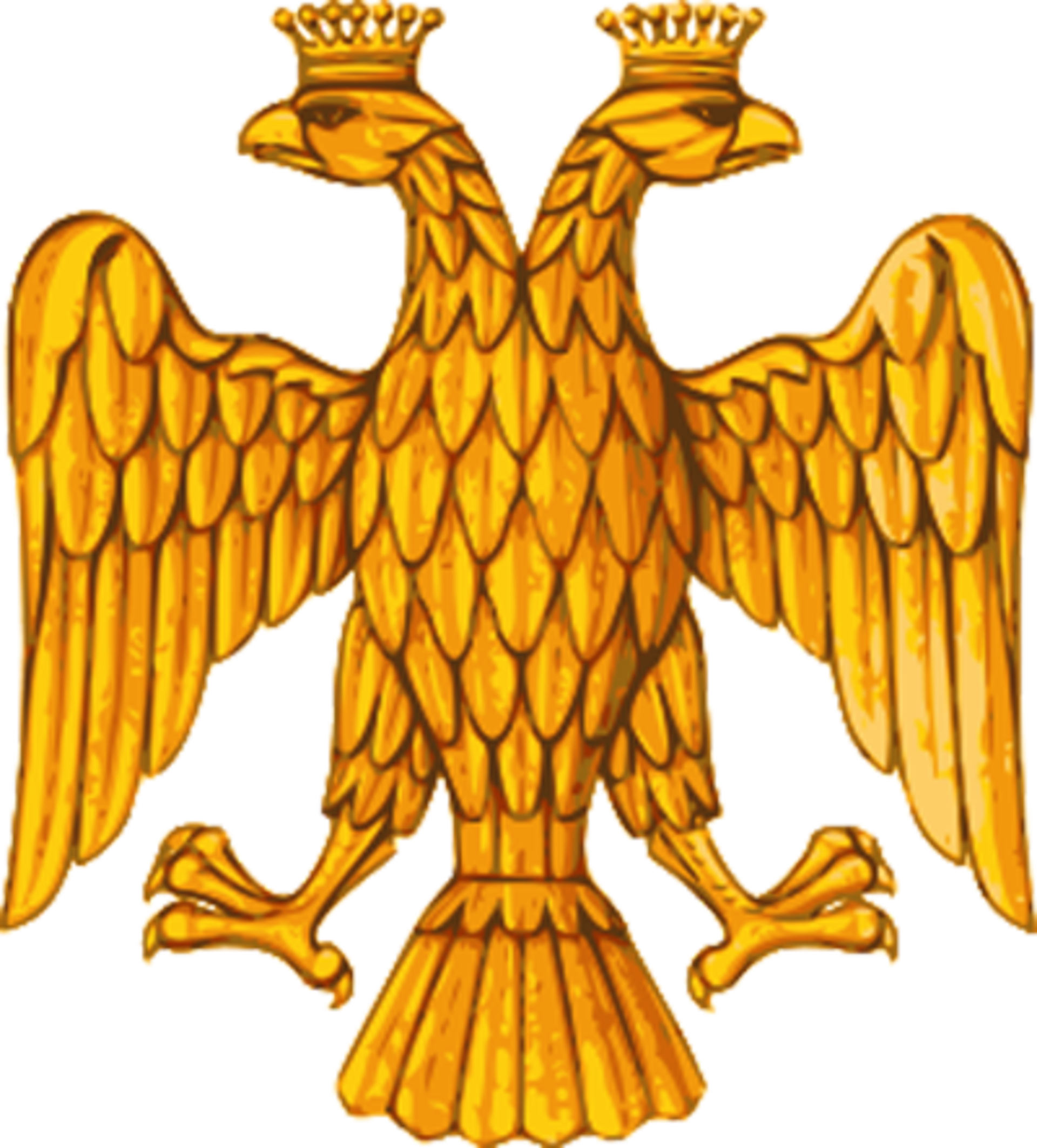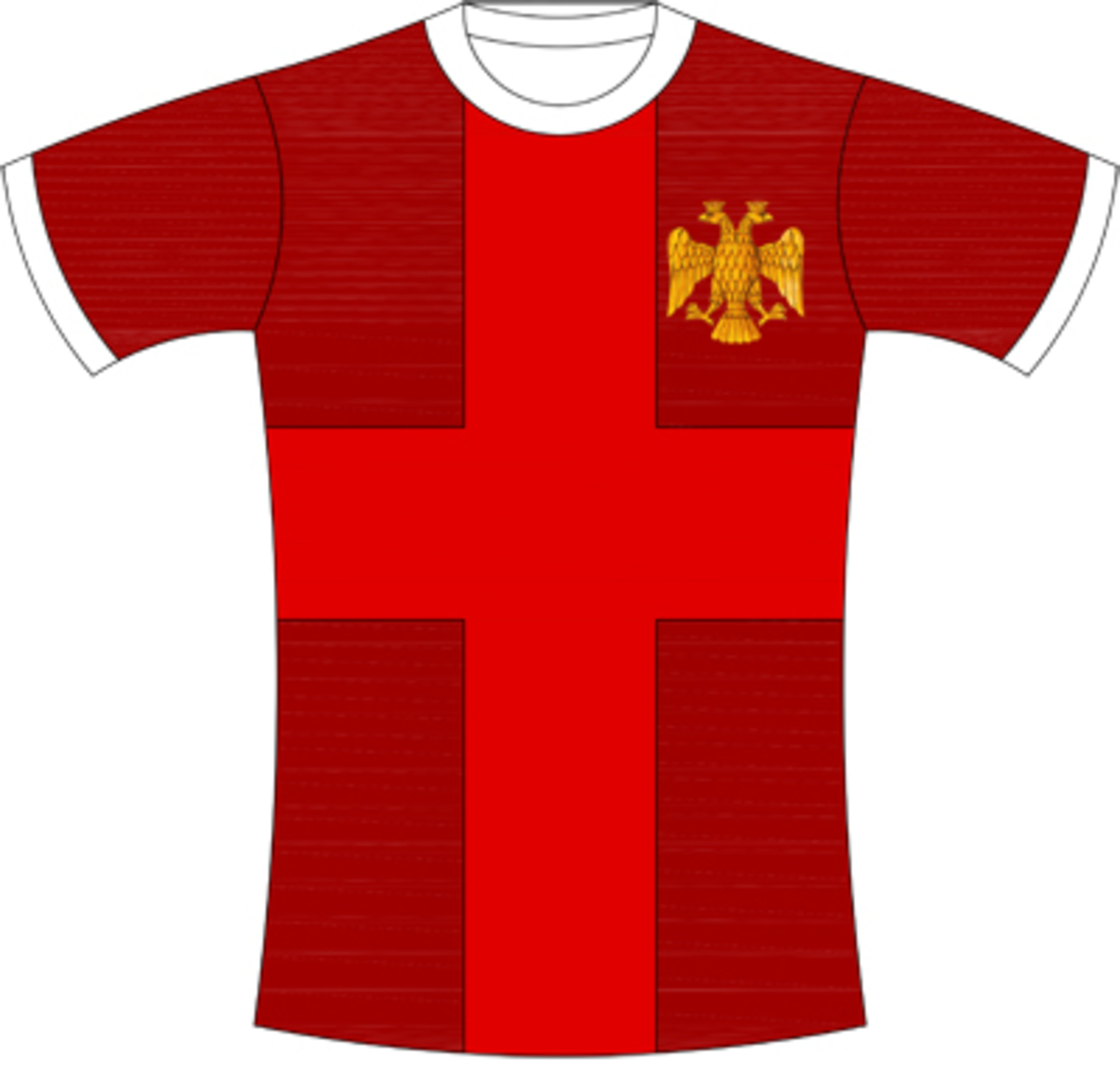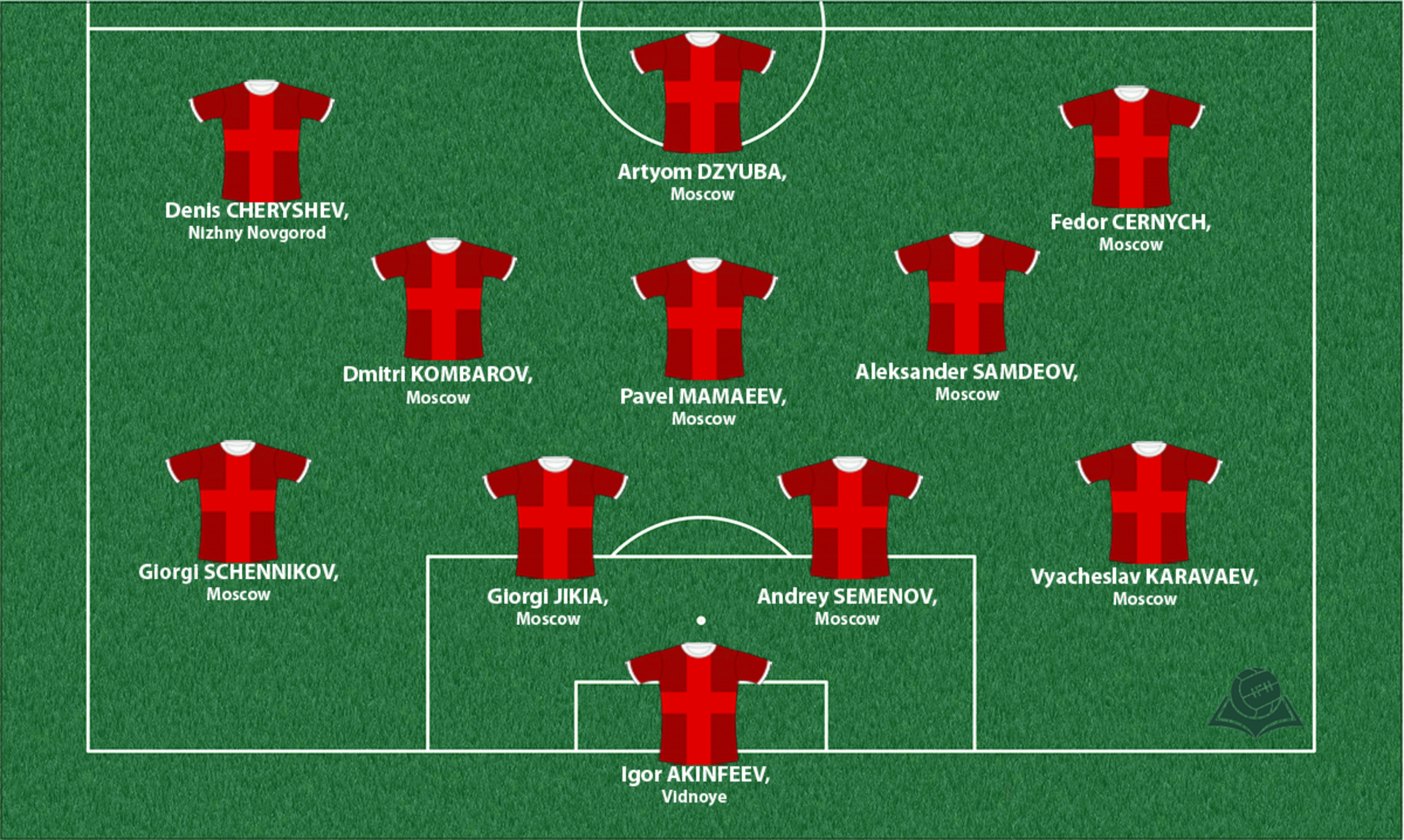The Principality of Moscow
The turning point in the ascension of the Principality of Moscow happened at the beginning of the 14th century, when the Tatar Khan confirmed the Prince of Moscow and his successors in the title of “Grand Prince,” by taking it away from Kiev, as well as their right to collect taxes in all principalities with the help from their intermediaries. In the 15th century, they succeeded to free themselves from the “Tatar yoke” through their military power, and started an offensive to “gather the rest of the principalities of the Land of the Rus.”

Coat of arms

Shirt
| Position | First name | Last name | Mjesto rođenja | Like | Dislike | |
|---|---|---|---|---|---|---|
| GK | Andrey | LUNEV | Moscow |
7 |
4 |
|
| GK | Igor | AKINFEEV | Vidnoye |
15 |
4 |
|
| GK | Yuri | LODIGIN | Vladimir |
0 |
1 |
|
| DC | Aleksey | BEREZUTSKI | Moscow |
0 |
0 |
|
| DC | Oleg | KUZMIN | Moscow |
0 |
0 |
|
| DC | Sergej | IGNASHEVIC | Moscow |
0 |
0 |
|
| DC | Vasili | BEREZUTSKI | Moscow |
5 |
1 |
|
| DC/DRL | Andrey | SEMENOV | Moscow |
3 |
2 |
|
| DC/DRL | Ivan | NOVOSELTSEV | Moscow |
0 |
1 |
|
| DRL | Renat | YANBAEV | Noginsk |
0 |
0 |
|
| DRL/MR | Aleksey | KOZLOV | Petrozavodsk |
0 |
0 |
|
| DR | Sergei | PARSHIVLYUK | Moscow |
0 |
0 |
|
| DR | Vyacheslav | KARAVAEV | Moscow |
2 |
1 |
|
| DLC/ML | Georgi | JIKIA | Moscow |
3 |
2 |
|
| DL/ML | Georgi | SCHENNIKOV | Moscow |
6 |
4 |
|
| DMC | Roman | EMELJANOV | Pavlovo |
0 |
1 |
|
| MC | Dmitri | TARASOV | Moscow |
2 |
1 |
|
| MC | Pavel | MAMAEEV | Moscow |
4 |
1 |
|
| MRC | Aleksandr | SAMEDOV | Moscow |
3 |
1 |
|
| MRC | Ilia | MAKSIMOV | Moscow |
0 |
0 |
|
| ML/DL | Dmitri | KOMBAROV | Moscow |
4 |
4 |
|
| MRLC | Aleksandr | TASHAEV | Moscow |
0 |
0 |
|
| AMC | Oleg | IVANOV | Moscow |
2 |
1 |
|
| AMC | Roman | EREMENKO | Moscow |
0 |
0 |
|
| AMRLC | Konstantin | KUCHAEV | Ryazan |
0 |
0 |
|
| AMRLC | Vyacheslav | PODBEREZKIN | Moscow |
1 |
1 |
|
| AMRL | Denis | CHERYSHEV | Nizhny Novgorod |
10 |
1 |
|
| AMRL | Diniyar | BILYALETDINOV | Moscow |
0 |
0 |
|
| FRLC | Fiodor | ČERNYCH | Moscow |
0 |
0 |
|
| FRLC | Pavel | YAKOVLEV | Moscow |
0 |
1 |
|
| FRLC | Timur | ZHAMALETDINOV | Moscow |
1 |
1 |
|
| FC | Fedor | CHALOV | Moscow |
1 |
1 |
|
| FC/SS | Artyom | DZYUBA | Moscow |
9 |
1 |
(Today part of: Russia around the Moscow)
The relationship between “Russians” and the Horde was one of a conquered people, exploited by their neighbouring state, which was present only in the personae of its representatives, whose power, often disputed, was manifested by incursions and raids. The Tatars exploited the fact that the princes were divided among themselves, and they named those who indulged their interests Grand Princes. At the beginning of the 14th century, Moscow gained predominance, and its prince Dmitry defeated the Tatar army at Kulikovo Field, east of the river Don (1380), but Moscow dared to decline paying tribute to the Tatars only a century after that.
After the fall of Constantinople (1453), the Russian Orthodox Church imposed itself as the new bastion of the Orthodox faith. With the help from the Church, the Grand Prince Ivan III (1462 – 1505) freed Moscow from their Tatar overlords and soon after that, considering themselves the successors to the vanished Byzantine Empire, he took the two-headed eagle for their coat of arms and reorganized his court to fit the Byzantine model. For decades after that, the Church, as well as the princes, whose resistance was not as single-minded and continuous, represented the centre of resistance against Tatar rule, holding from that time on to the theory that the Grand Prince had received his power and the right to rule from God. It was limited, but it had to be used in support of the faith, persecution of infidels, and the protection of the properties of the Church. Also, with the ascension of the Moscow State, which proclaimed itself the “gatherer of all Russian lands” and the successor of the Kiev State, the state gradually affixed the term Rus to itself. Nevertheless, the Tatar threat from the East would be finally removed only in the second half of the 16th century while, at the same time, the state was being pressured from the West by the Catholic Teutonic knights, and the powerful Polish-Lithuanian Union.
Sources
- Felipe FERNANDEZ-ARMESTO, Narodi Europe, Zagreb, 1997.
- Grupa autora, Povijest: Humanizam i renesansa, doba otkrića, knjiga VIII., Zagreb 2008.
- Grupa autora, Povijest: Razvijeni srednji vijek , knjiga VII., Zagreb 2008.
- Dmytro NALYVAJKO: Kijevs'ka Rus'i Zapadna Europa u: Zakarpats'ka Ukrajina: povijest – tradicija – identitet (Priredio Jevgenij Paščenko, Zagreb: Hrvatsko-ukrajinsko društvo, 2013.,21-73
- M.Kotljar,V. Kravčenko, V. Holodnyc'kyj,. L. Kovpak: Rus’, Rusy, Rusyni u: Zakarpats'ka Ukrajina: povijest – tradicija – identitet (Priredio Jevgenij Paščenko, Zagreb: Hrvatsko-ukrajinsko društvo, 2013., 19; Felipe FERNANDEZ-ARMESTO, Narodi Europe, Zagreb, 1997
- Coat of Arms: http://markodehaeck.free.fr/RU.htm
